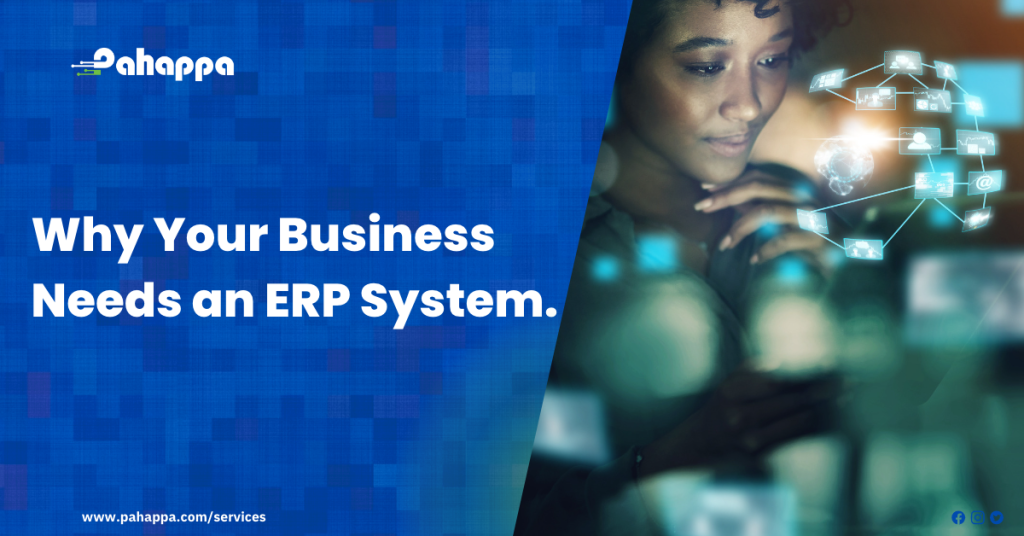Your business is growing its clientele. You are hiring more and more skilled personnel to help you with your daily activities. Sales are being made at a large scale, and you are confident you can open up another shop.
But with every order comes a printed quotation, and printed receipt books and tracking your business flow is becoming more complex each minute.
So you begin to look for a permanent solution to monitor your workflow. That is how ERP software comes to play.
Enterprise Resource Planning System is a type of software organizations use to manage day-to-day business processes, such as accounting, procurement, project management, risk management, and supply chain operations.
With an ERP system, you can basically gather data from all departments.
A business consists of basic departments like sales, marketing, production, accounts, and Operations to mention but a few. Imagine having all the necessary data of each of these departments in one system.
ERP systems are very beneficial to businesses today because of the following reasons;
Increased productivity; Every business owner values productivity. Increased productivity equals increased sales which equal increased profits; naturally. By automating processes like receipt generation and inventory tracking, time that would have been spent on doing such activities manually can now be spent on other tasks.
Centralised data; As a business owner or manager of a department, having all the data from different departments saves a lot of time going from department to department to check on their progress. Knowing that different departments have synchronised data flow saves time and enables easier decision-making.
Reduction of operational costs; Office supplies, Office infrastructure, and admin resources can all be reduced through business processes and workflow automation. An ERP system automatically replaces most of these costs.
Easier Reporting and Decision Making; Business owners and managers can make decisions quickly when all facts are presented before them in a centralised system.
Improved Customer Service; An automation of the business processes also means automation of the sales process. The sales and customer care team will be able to engage directly with the clients and save important customer queries.
Department Collaboration; Since all departments report in the same system, it is easy to collaborate with different departments to gather information and plan where necessary. Departments can share integrated information.
Easier tracking of inventory; For businesses selling products, inventory needs to be tracked especially with large organisations. ERP systems help businesses to locate different assets all over business premises and outlets.
Having an ERP System allows you to have a competitive advantage in the long run. ERP systems can edge you ahead of the competition with a higher level allowing you to perform better and deliver more quality customer experiences. Learn more about business processes and how to automate them using an ERP system here.











